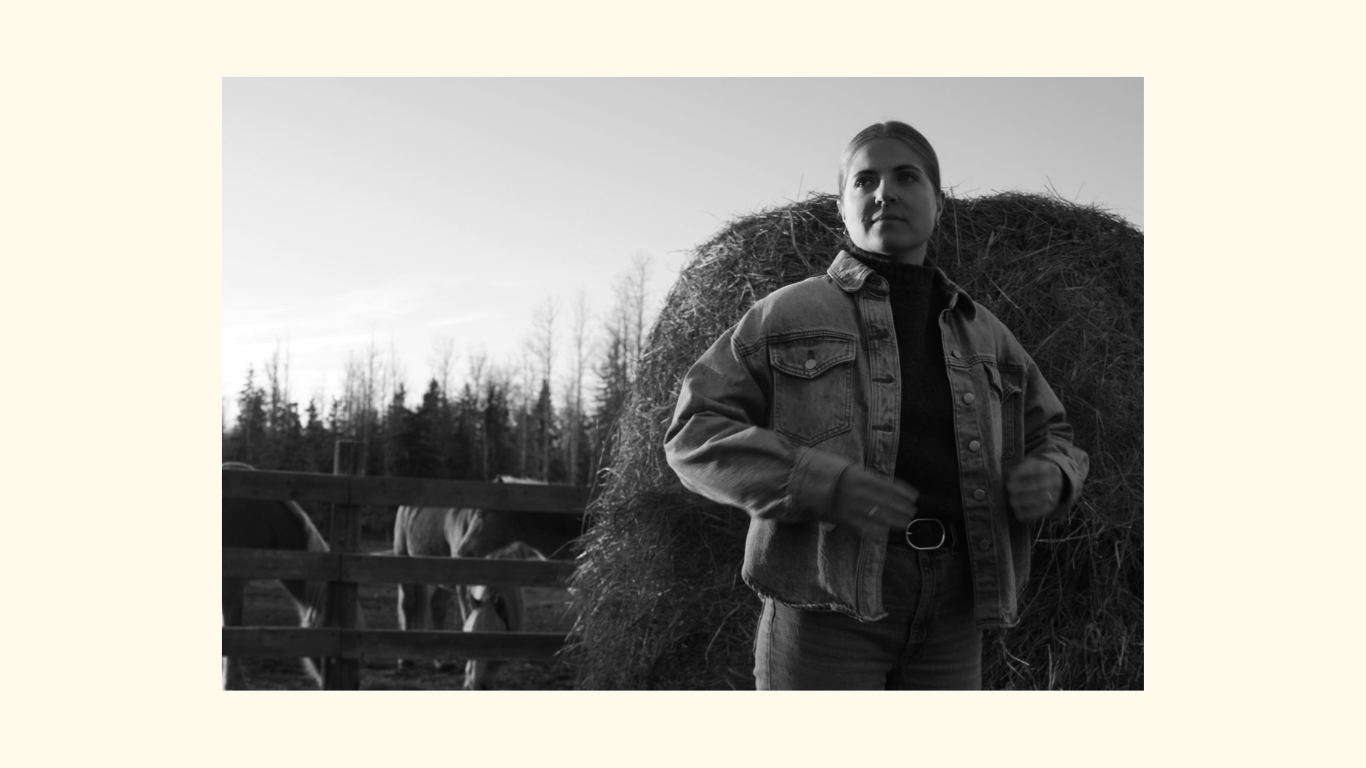Vision
We envision a thriving local textile economy where farmers are fairly compensated for their stewardship of the land, where we can process raw materials into textiles locally, and where skilled artisans are celebrated for the beauty they create.
Mission
Our mission is to craft timeless garments that are made to last, using locally sourced fibre that is so natural, it can return to the earth through composting at the end of its life.
Values
-
Our Farmers
With firsthand experience on farms, we deeply value the essential role farmers play in nurturing the land and producing both food and fibre. We support their work and encourage others to reconnect with the land.
-
Artisinal Goods
While the internet makes it easy to buy anything, mass-produced products often lack the quality and traceability needed to ensure ethical practices. In contrast, purchasing a thoughtfully crafted product directly from a skilled artisan evokes a deeper connection and creates something to cherish for a lifetime.
-
Local
Our dream is a life where we buy all our food from the farmer’s market, furniture from a craftsman a few range roads over, and clothing from a local maker. Supporting local farmers and artisans is key to revitalizing rural communities and helping them thrive.

Founder
Hello, I’m Jillian Barvir, the founder and designer behind Marty Lynn, a clothing brand born from my search for local textiles to craft my own garments. As I began making my own clothes, I quickly discovered that Canada lacks locally available textiles—over 95% of our clothing and textiles are imported. Inspired to learn more, I immersed myself in books like Sheep, Shepherd & Land by Anna Hunter, Fleece & Fibre by Francine McCabe, and Fibreshed by Rebecca Burgess. I discovered a growing movement of fibre farmers, grassroots organizations like the Canadian Wool Collective, and small mills advocating for the environmental and social benefits of a local textile economy. This vibrant vision—where textiles are grown, processed, and crafted close to home—felt like something I had to be part of.
The benefits of a local textile economy extend far beyond clothing. It fosters community resilience, supports fair compensation for farmers and artisans, and provides an alternative to exploitative global systems that rely on harmful labour practices and environmental degradation. Wool, in particular, offers an abundance of natural advantages: it’s renewable, biodegradable, and incredibly durable. Witnessing the potential of this movement, I felt compelled to create Marty Lynn as a way to contribute to its growth while crafting garments that embody care and intention.
Yet, this journey has not been without its challenges. While Canada produces an abundance of raw wool, much of it ends up discarded—burned or sent to landfills—because wool isn’t widely valued here. Farmers often raise sheep for meat, leaving fleeces contaminated with debris and unsuitable for textile production. Additionally, Canada lacks sufficient manufacturing capacity to process all of our raw wool, with mill wait times stretching up to two years. Compounding this, overseas production remains cheaper due to exploitative labour and unsustainable practices that fail to account for their true costs.
There’s significant work to be done to build a thriving local textile economy. My role begins with supporting the infrastructure we already have—partnering with local mills to source yarn and handcrafting knitwear in my rural Alberta studio. As I grow, I’m building relationships with regenerative farmers to produce cleaner fleece while ensuring they’re fairly compensated for their land stewardship. Just as importantly, I hope to educate consumers about the power they hold to support their communities and the environment through thoughtful purchasing decisions. Marty Lynn is my contribution to a future where textiles reflect care, integrity, and connection at every stage of their journey.